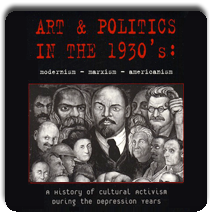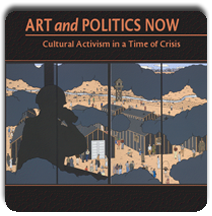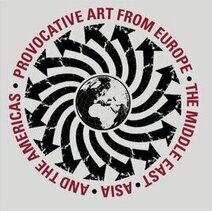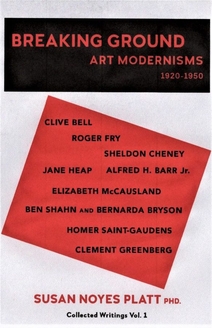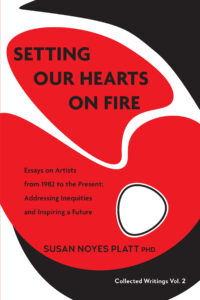Women’s Suffrage and Women’s Suffering
The Center on Contemporary Art (COCA) WHAT STORY WOULD THE UNINTENDED BENEFICIARIES TELL (WSWUBT), which closes in two days, is a wonderful small selection of artists addressing the suffrage amendment and who was left out. The artists include Carletta Carrington Wilson with a selection from her incredible Letter to a Laundress series that I have written about before.
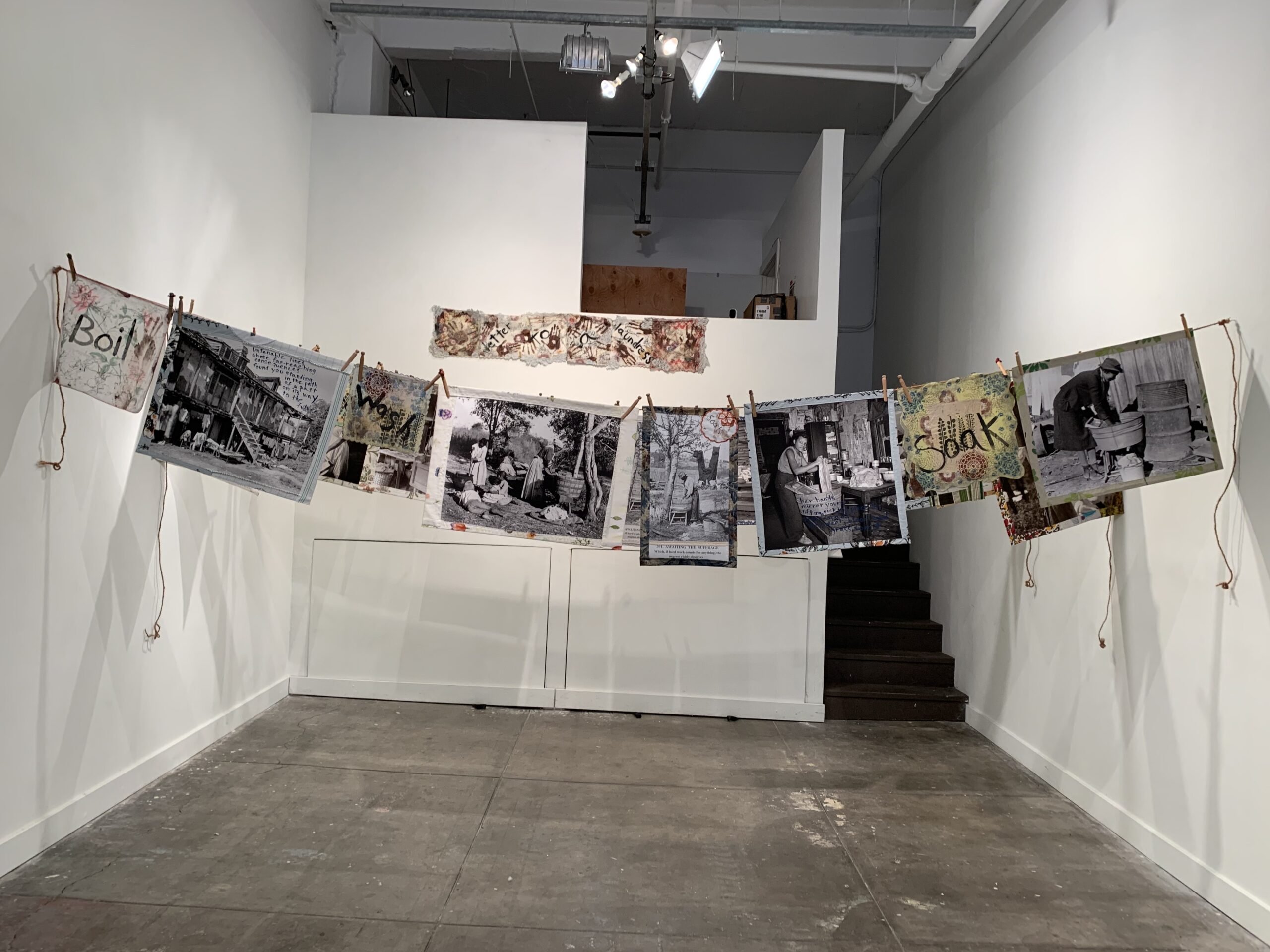
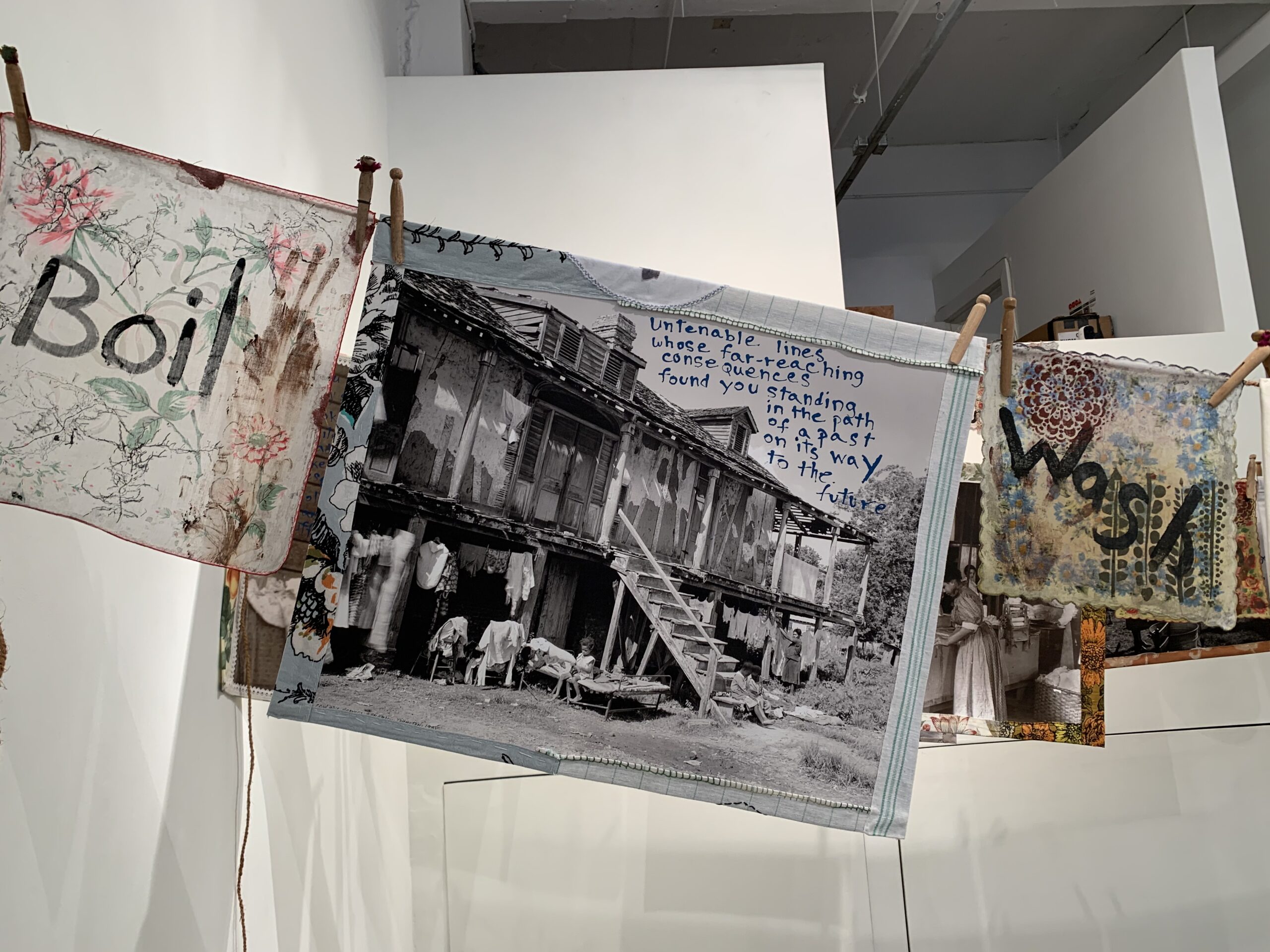
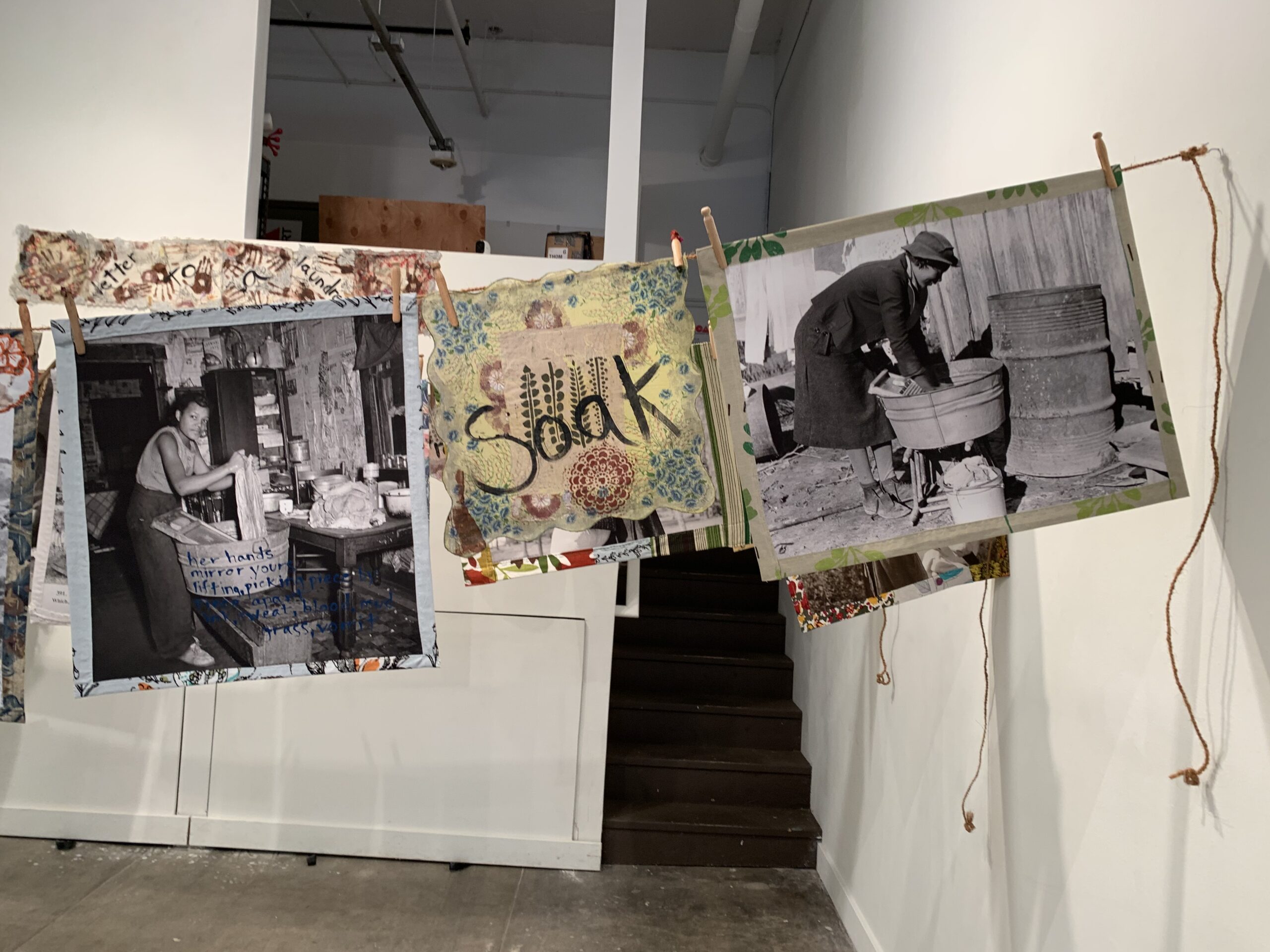
Carletta was stunned to discover that one of the archival photographs from the 1930s WPA photographers project had a caption directly referring to black women being left out of suffrage. Carletta added this image three times to her original series.
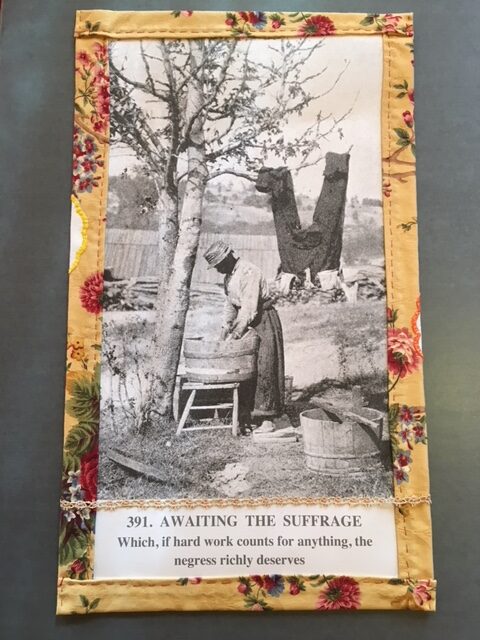
And note the background of the photograph with the upside down pants. Each verb in this series has a step in the laundry process, which we don’t even know about any more with our washing machines. Each step, as the artist hangs it on the washing line across the gallery suggests another meaning. In her installation Carletta had ten steps “Wash Soak Starch Wring Boil Pin Rub Scrub Hang Press.”
The other artists at COCA are less familiar to me, but together make a compelling statement.
This is Charlie Carlos Palmer directly referring to slavery in his powerful paintings that imitate the language of run away slaves and auctions. Look closely at the details!
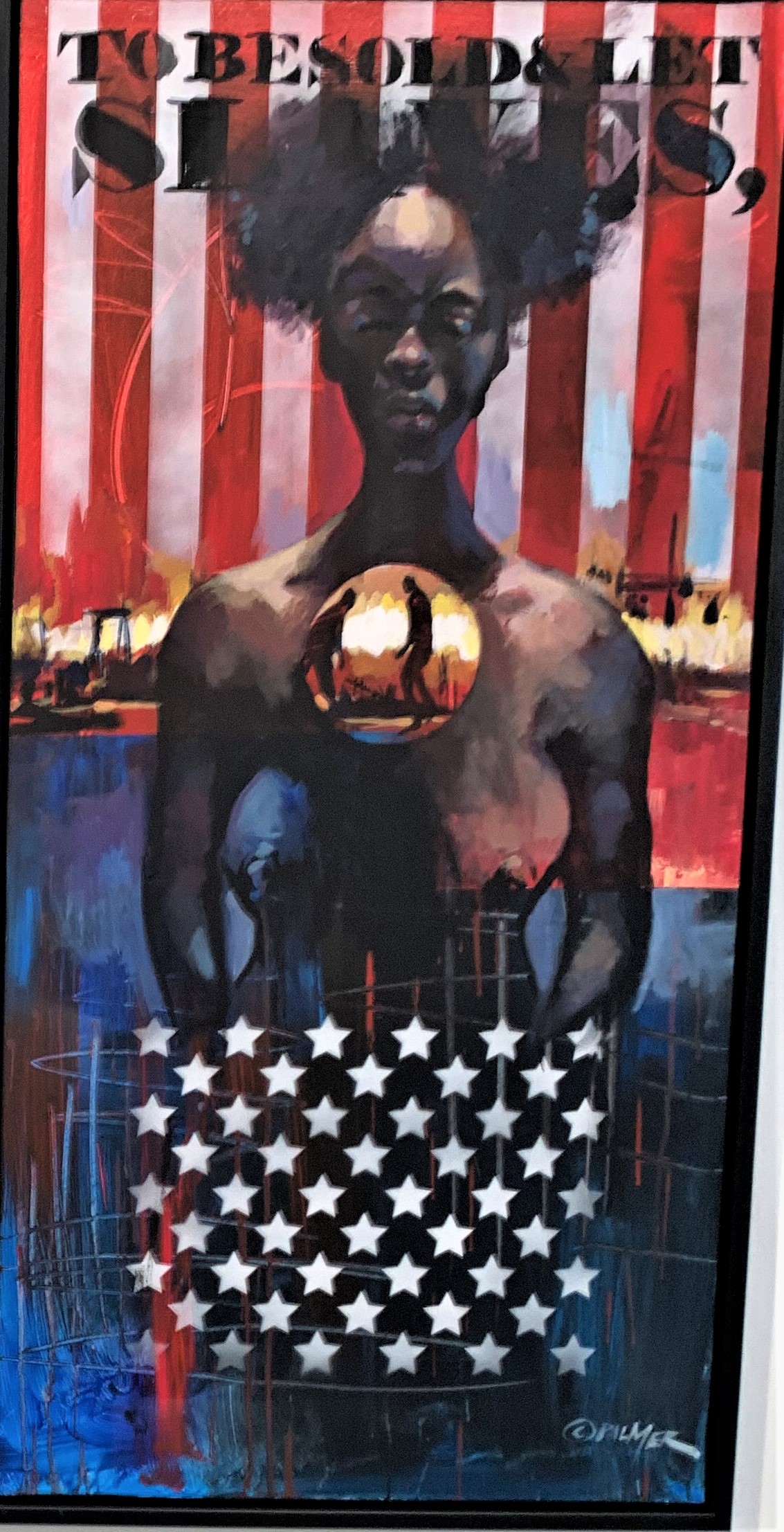
Hollow I 2020 Acrylic on Canvas 48 x 24″
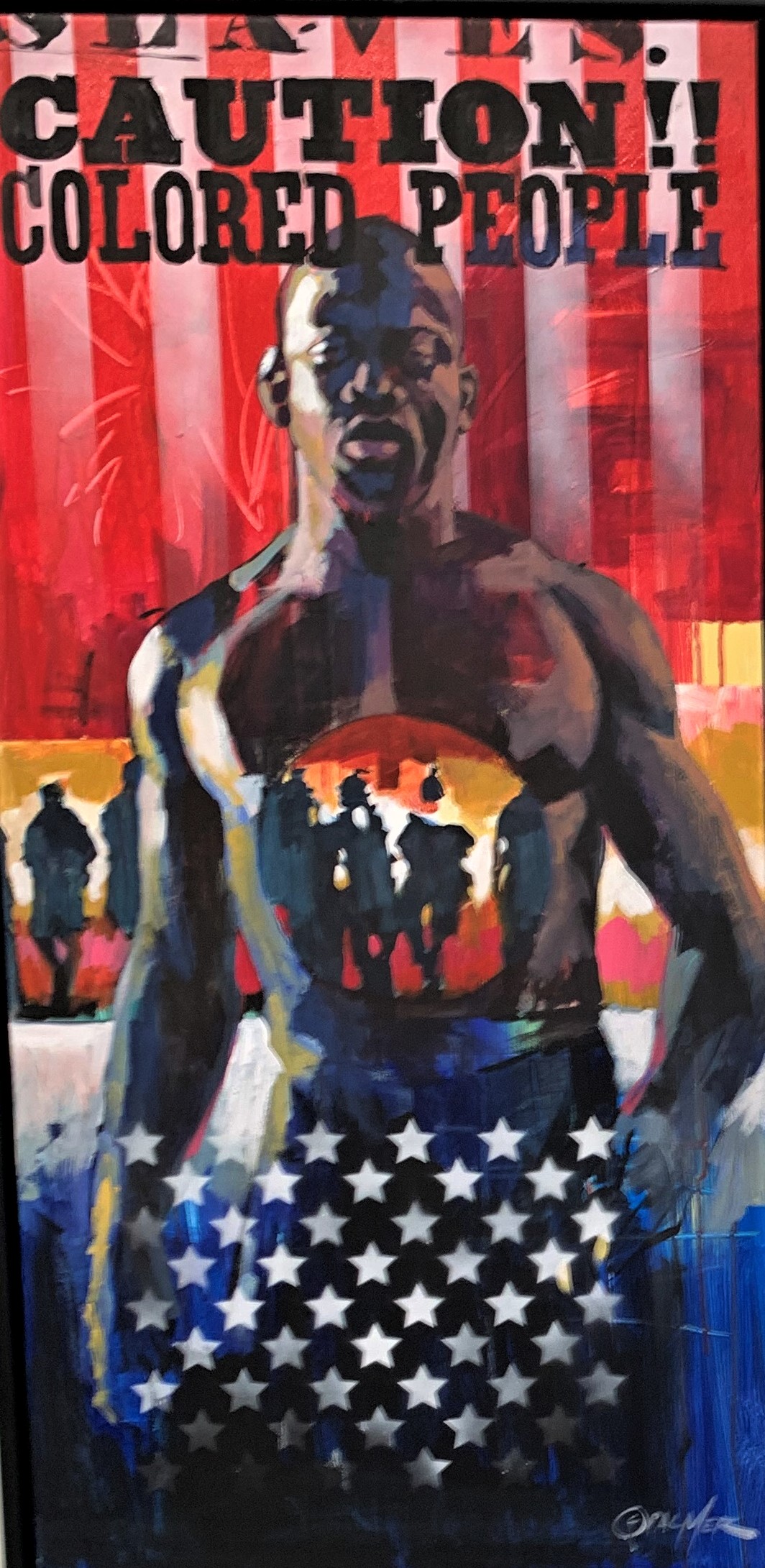
Hollow II 2020 Acrylic on Canvas 48 x 24″
We have Bonnie Parker
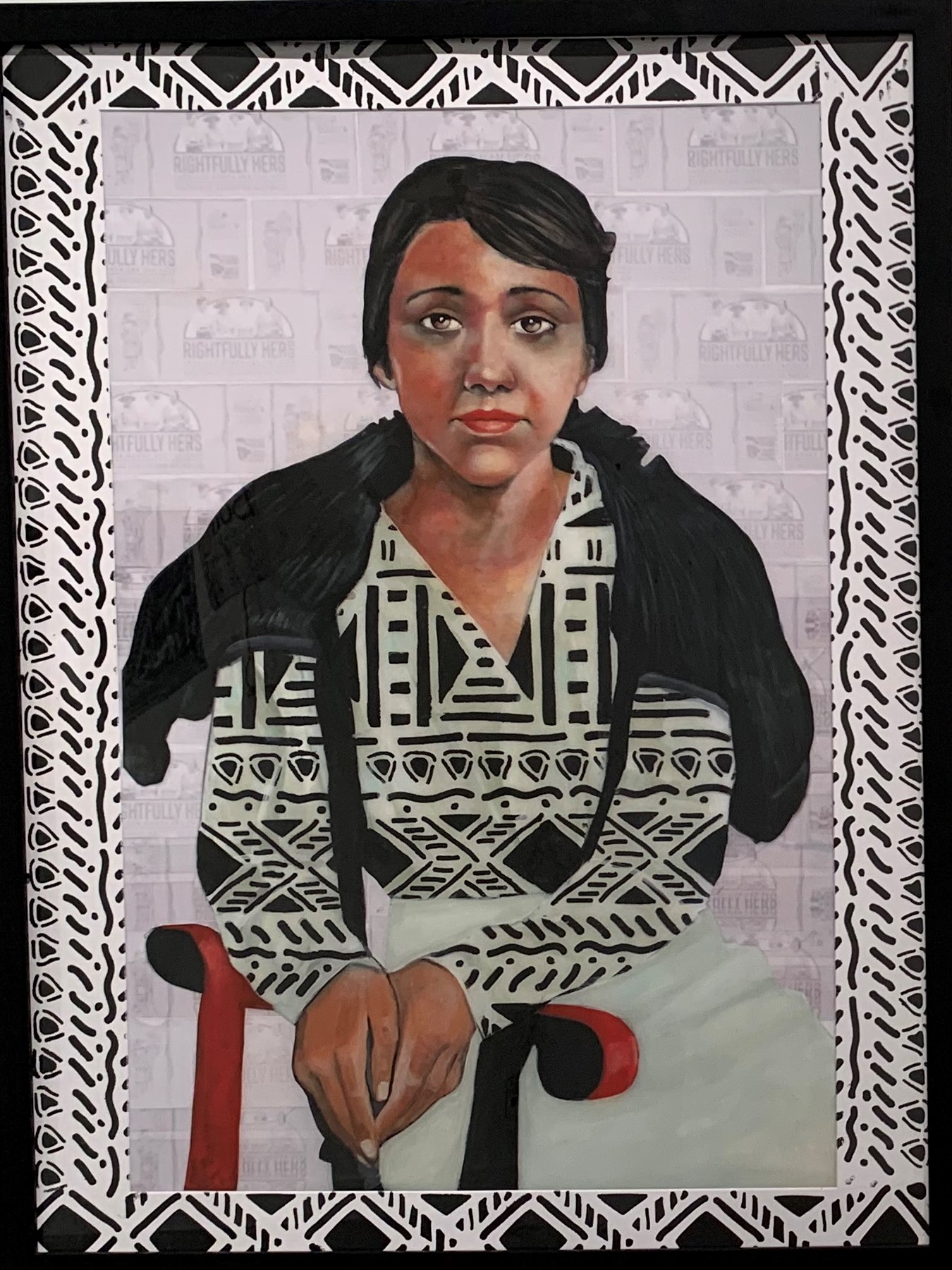
Left Out of the Conversation 2020 acrylic on yupo paper 30 x 40″
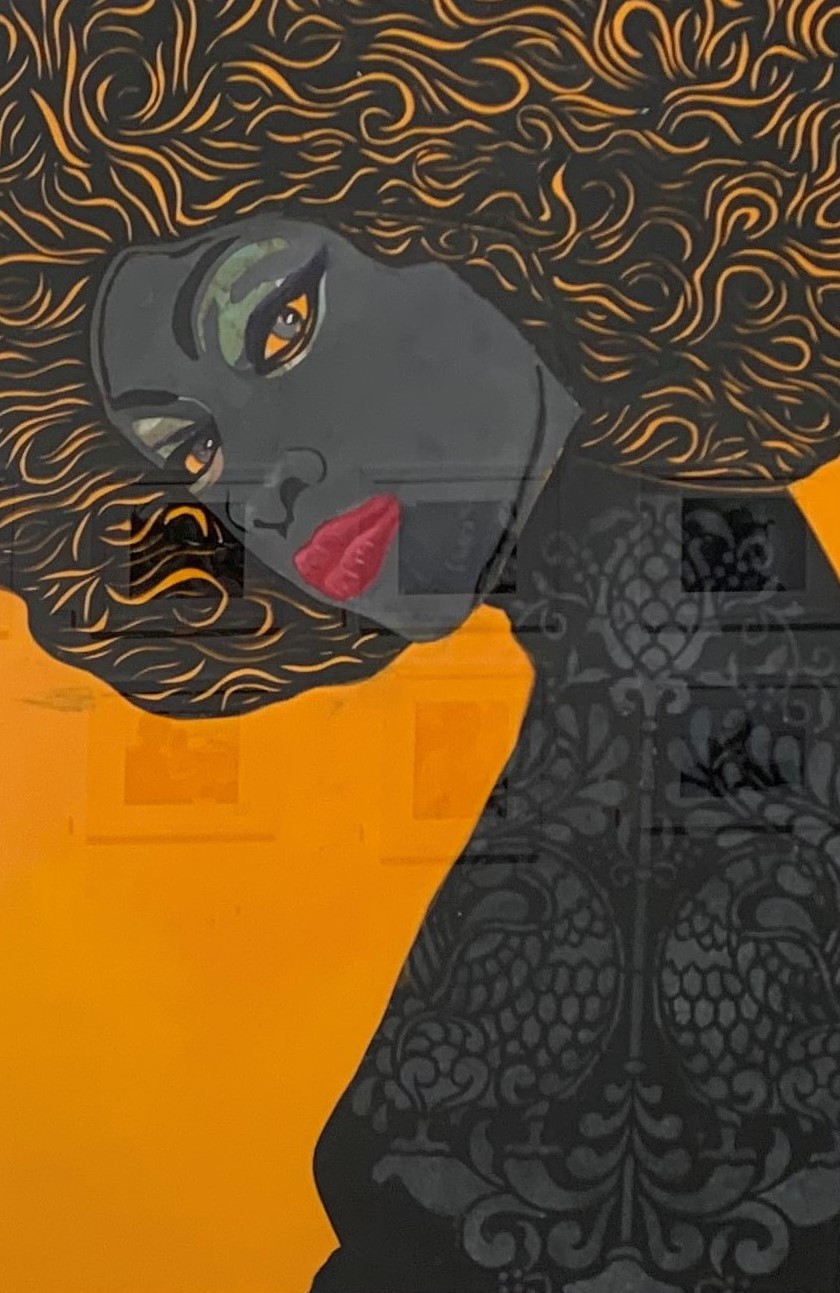
Legacy, 2020 printer ink on yupo paper 30 x 40″
with her compelling portraits of black women.
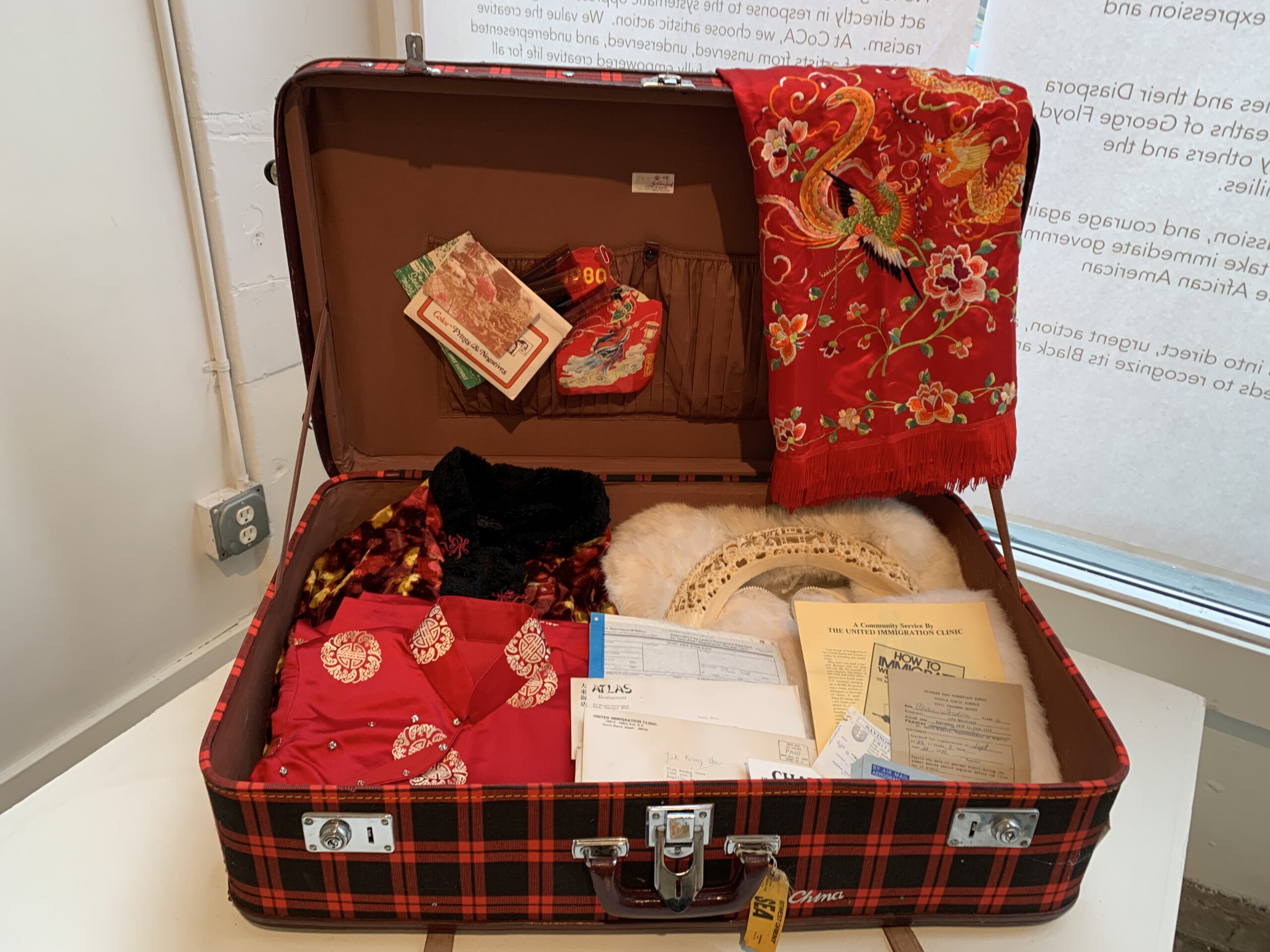
The Things They carried 2018
And then there is the fascinating Monyee Chau addressing the Chinese American experience.
Finally there is Lisette Morales with her wonderful series of Latina portraits. Here is one.
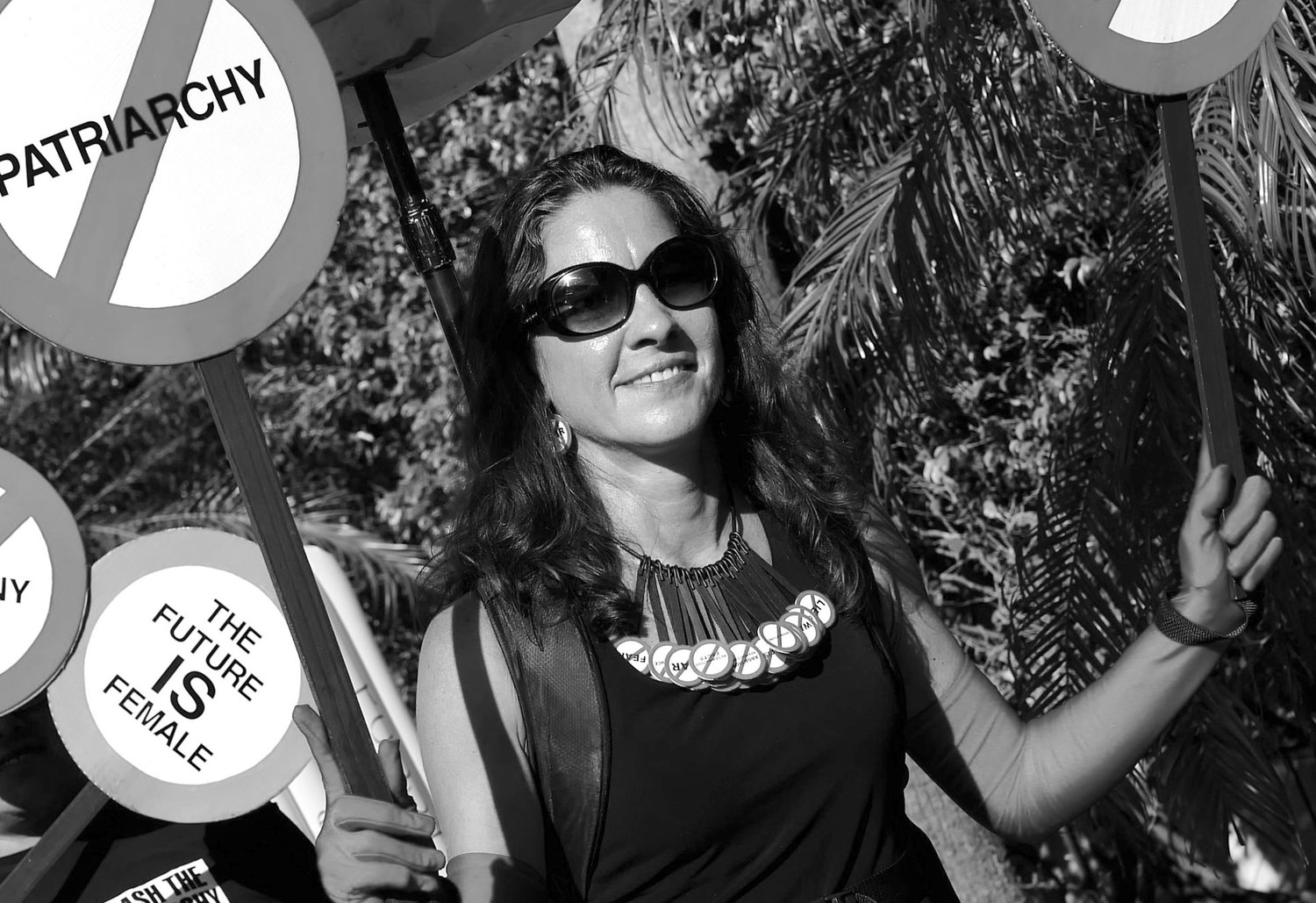
Alessandra Mondolfi | Artist and Activist
the artist has described her series as “Compathy: Latinas on both sides of the lens” is a collection of 22 Black & White portraits of Latinas. See the rest of the series on her website.
They include a wide range of Latinas of different ages and professions
Ivette Gomez describes them in her eloquent statement
“They are embodied compassion and empathy in action. Sometimes heroines, like the nurse that risks her life in a pandemic, other times women that are considered arrogant or prideful because they dare express what they consider to be unfair, for being advocates of the rights of those that have not yet found their own voice.”
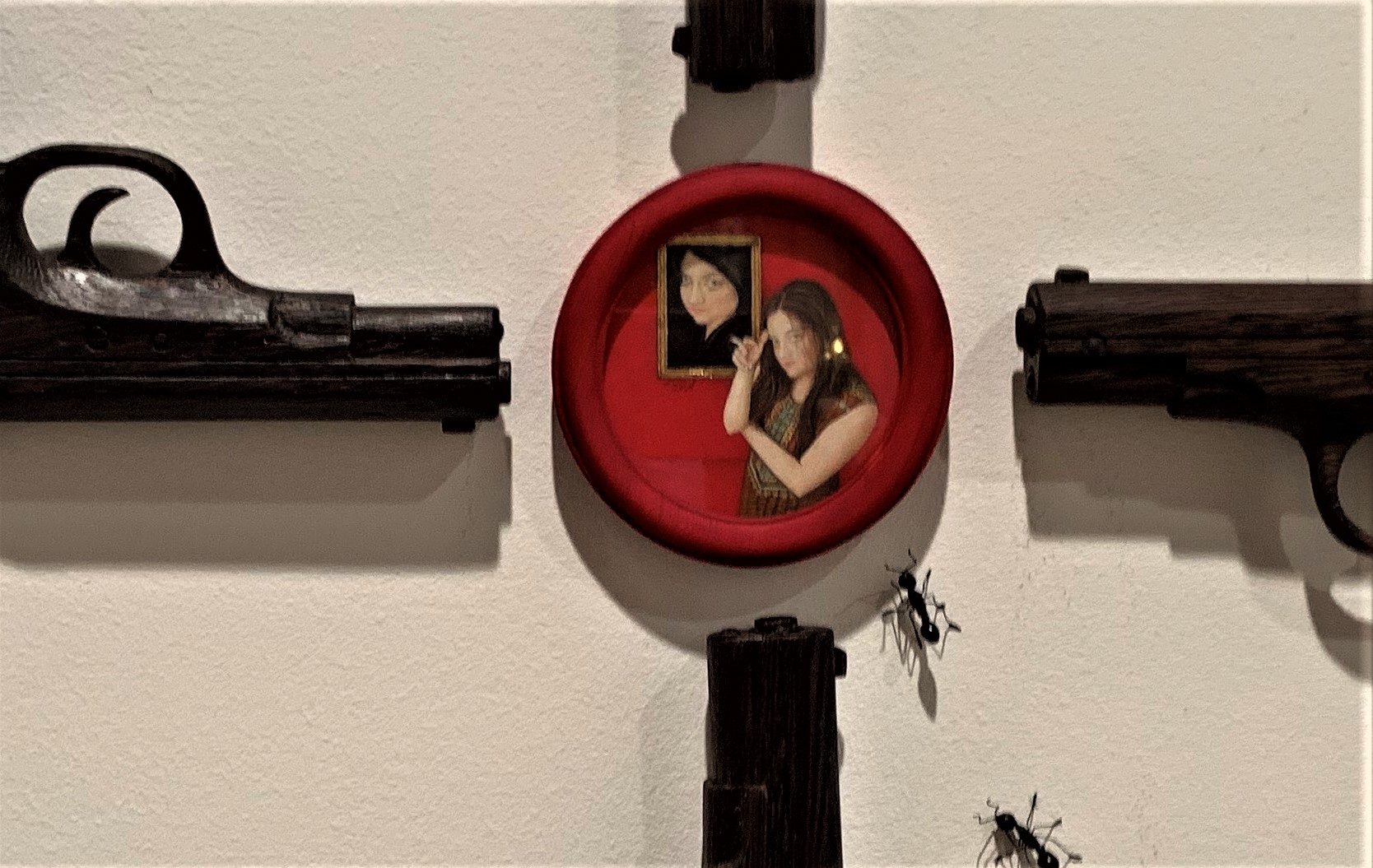
Another important show is at Greg Kucera until November 7 “Humaira Abid, Sacred Games” This amazing exhibition, her first at Greg Kucera’s, reveals her secret sorrow. At first it looks like ordinary objects brilliantly fashioned from wood, a purse, a shirt, but as we go deeper into the exhibition we learn that she was molested repeatedly as a child by a family member, and everything acquires a new layer of intense meaning. There are also explicit references to her traumatic experiences. Here are a few of her works
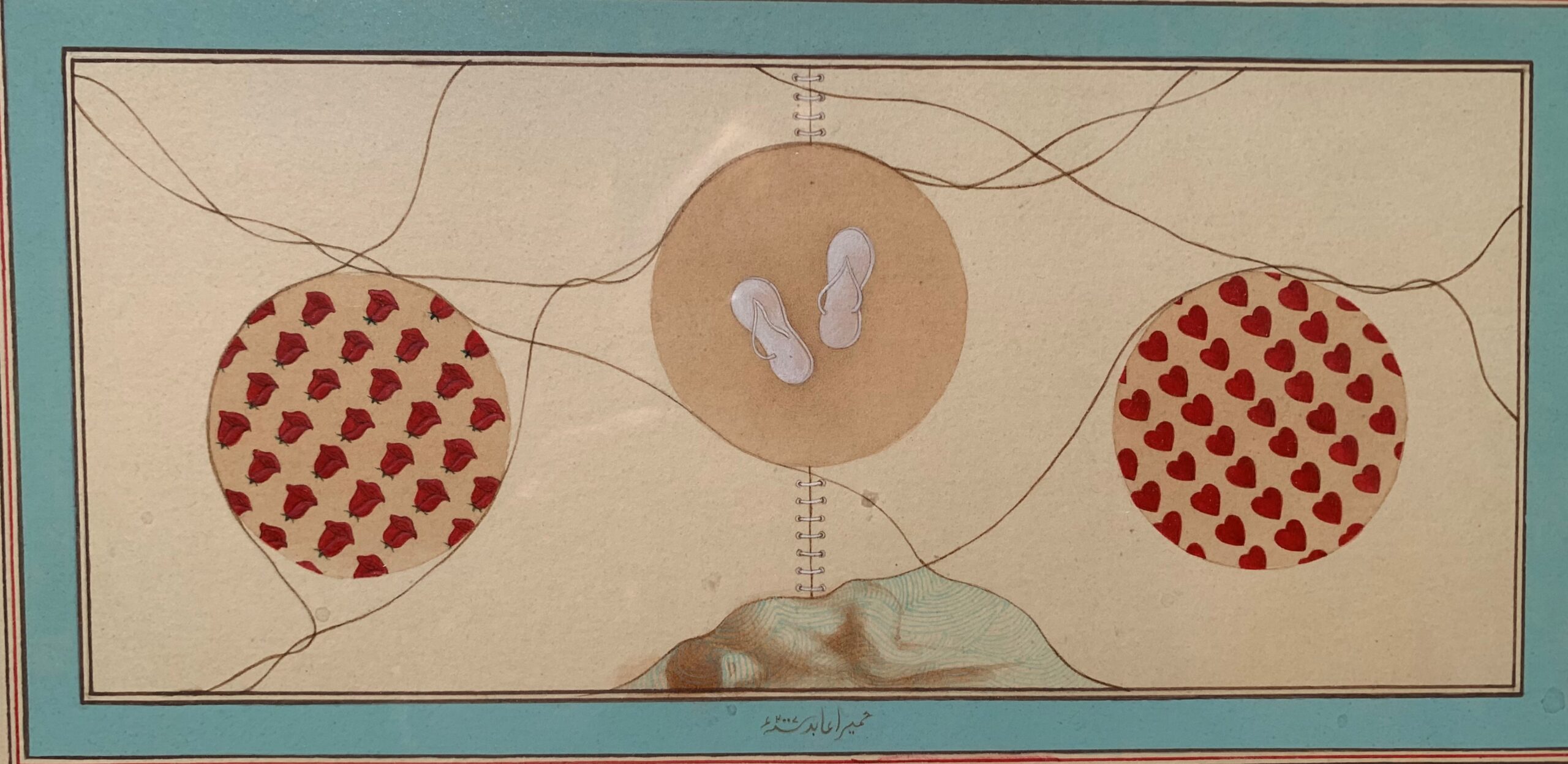
WOMAN’S PLACE IN A MAN’S WORLD – I, 2007 Gouache on hand made wasli paper 17.5 x 13.75 inches
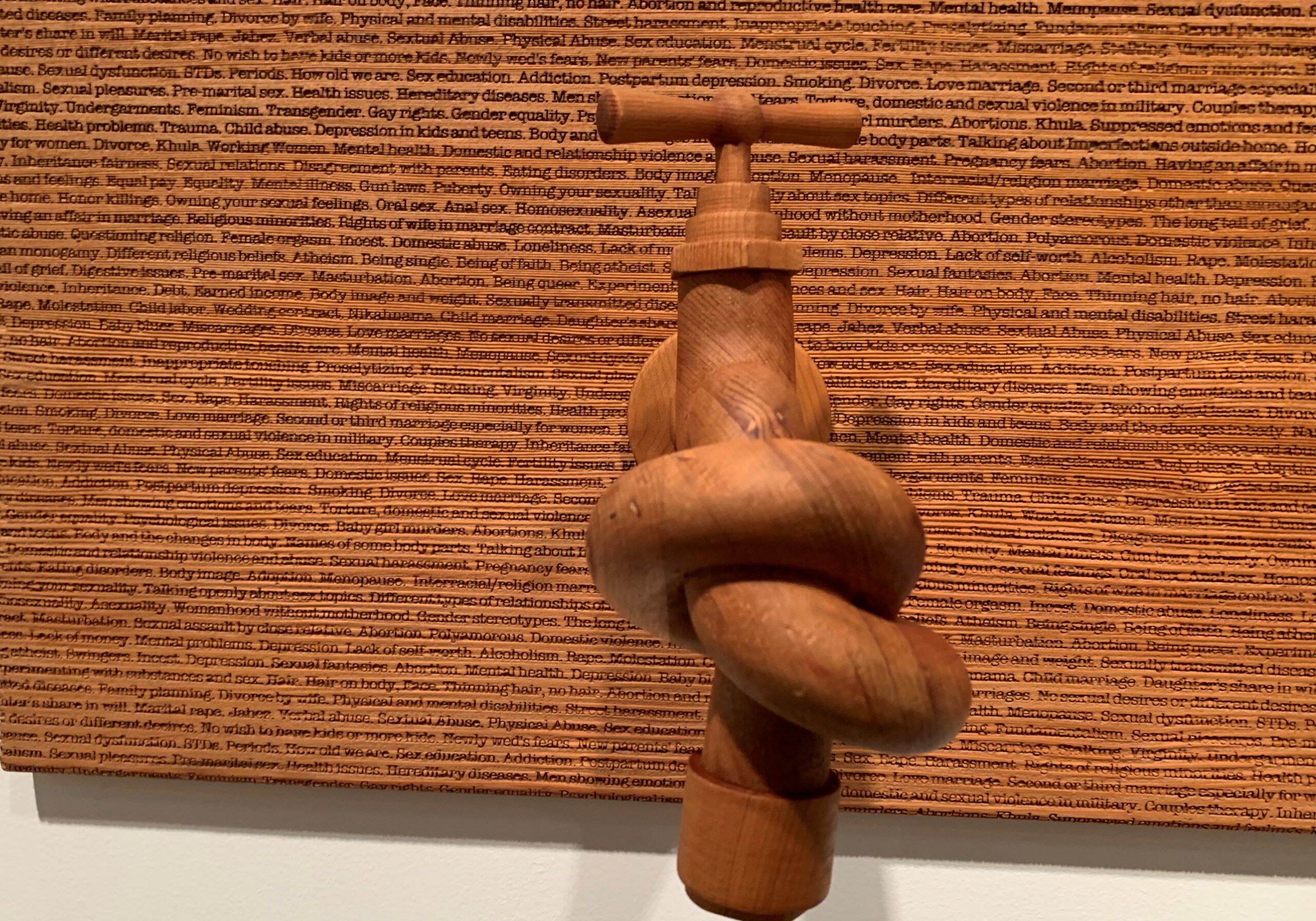
CONVERSATION, 2020, carved pine and laser etched fir, 48 x 11 x 8.5 inches
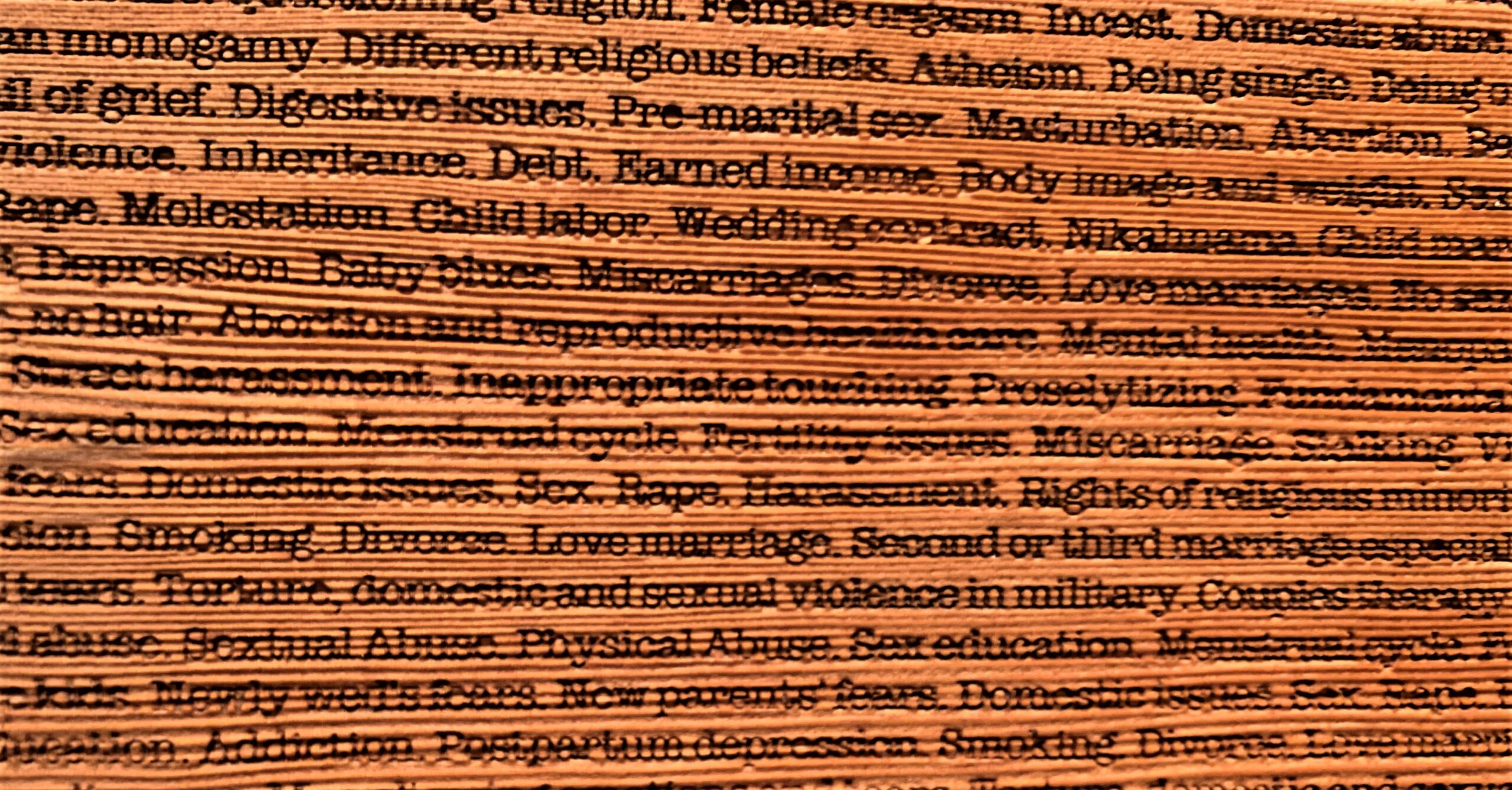
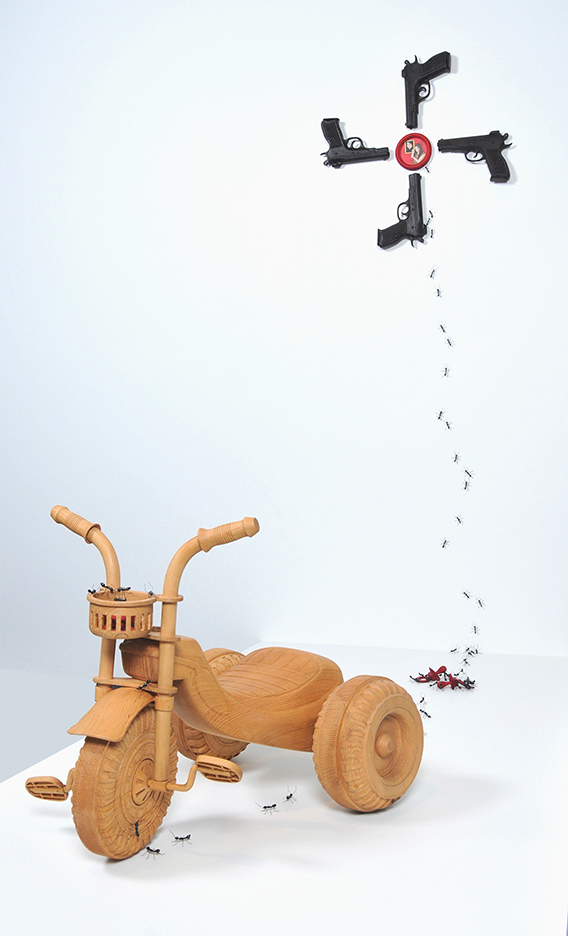
SELF PORTRAIT, 2014 Carved wenge and pine woods, wood stain, wire, epoxy putty, paint, gouache on handmade wasli paper, 24k gilding Installation dimensions: 72 x 60 x 36 inches
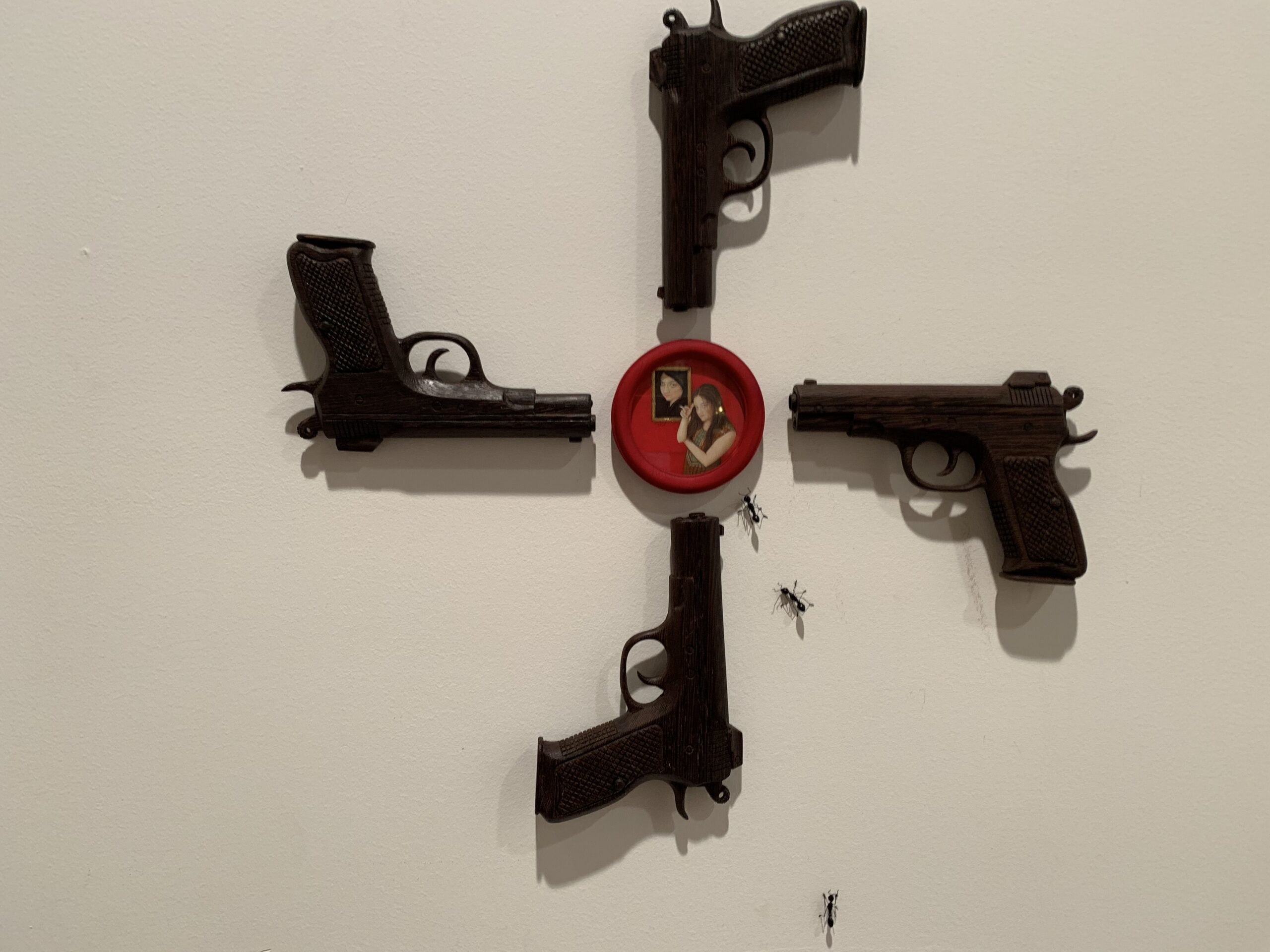

It is appropriate that as we celebrate Women’s Suffrage and remember all those who were not included, we also think about domestic violence and the trauma of family violations. As we dread the appointment of Amy Barrett, who will remove the right to abortion practically immediately, we grieve for the women who will suffer as a result.
Not to mention that suffrage itself is under attack on all fronts by the desperate right wing.
I hope we have a landslide, but that won’t undo the damage already done to the environment, to women, to our social fabric which is being ravaged by the virus.
As we head into the dark winter, it is crucial that we find a way forward to be actively resisting darkness on all sides.
This entry was posted on October 22, 2020 and is filed under African American history, Art and Politics Now, art criticism, Black Art, Carletta Carrington Wilson, Feminism, Uncategorized.


